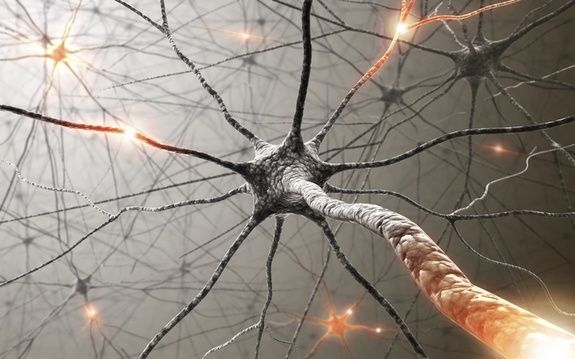
Brain cells can live at least twice as long as the organisms in which they reside, according to new research.
The study, published today (Feb. 25) in the journal Proceedings of the National Academy of Sciences, found that mouse neurons, or brain cells, implanted into rats can survive with the rats into old age, twice as long as the life span of the original mice.
The findings are good news for life extension enthusiasts.
"We are slowly but continuously prolonging the life of humans," said study co-author Dr. Lorenzo Magrassi, a neurosurgeon at the University of Pavia in Italy.
So if the human life span could be stretched to 160 years, "then you are not going to lose your neurons, because your neurons do not have a fixed lifetime."
Long-lived cells
While most of the cells in the human body are being constantly replaced, humans are born with almost all the neurons they will ever have. [10 Odd Facts About the Brain]
Sign up for the Live Science daily newsletter now
Get the world’s most fascinating discoveries delivered straight to your inbox.
Magrassi and his colleagues wanted to know whether neurons could outlive the organisms in which they live (barring degenerative diseases like Alzheimer's).
To do so, the researchers took neurons from mice and implanted them into the brains of about 60 rat fetuses.
The team then let the rats live their entire lives, euthanizing them when they were moribund and unlikely to survive for more than two days, and then inspected their brains. The life span of the mice was only about 18 months, while the rats typically lived twice as long.
The rats were found to be completely normal (though not any smarter), without any signs of neurological problems at the end of their lives.
And the neurons that had been transplanted from mice were still alive when the rats died. That means it's possible the cells could have survived even longer if they were transplanted into a longer-lived species.
Life extension
The findings suggest that our brain cells won't fail before our bodies do.
"Think what a terrible thing it could be if you survive your own brain," Magrassi told LiveScience.
While the findings were done in rats, not humans, they could also have implications for neuronal transplants that could be used for degenerative diseases like Alzheimer's disease or Parkinson's disease, Magrassi said.
But just because brain cells may be able to live indefinitely doesn't mean humans could live forever.
Aging is dependent on more than the life span of all the individual parts in the body, and scientists still don't understand exactly what causes people to age, Magrassi said.
Follow LiveScience on Twitter @livescience. We're also on Facebook & Google+.

Tia is the managing editor and was previously a senior writer for Live Science. Her work has appeared in Scientific American, Wired.com and other outlets. She holds a master's degree in bioengineering from the University of Washington, a graduate certificate in science writing from UC Santa Cruz and a bachelor's degree in mechanical engineering from the University of Texas at Austin. Tia was part of a team at the Milwaukee Journal Sentinel that published the Empty Cradles series on preterm births, which won multiple awards, including the 2012 Casey Medal for Meritorious Journalism.
Most Popular

